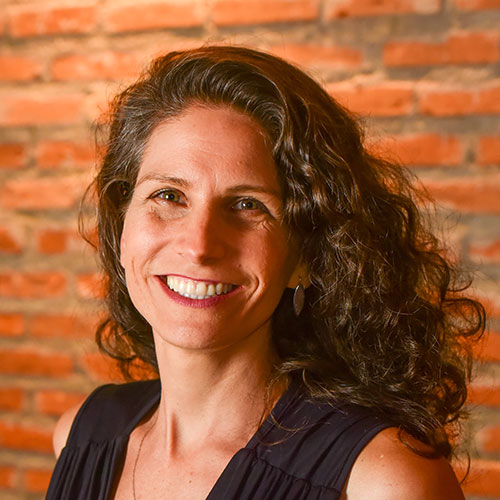Vaga Lume has been transforming the lives of children in the Amazônia through reading for over 20 years
The association began with a community library in Soure and Alter do Chão, Pará, in 2001 and is now present in 22 municipalities in the Amazon region
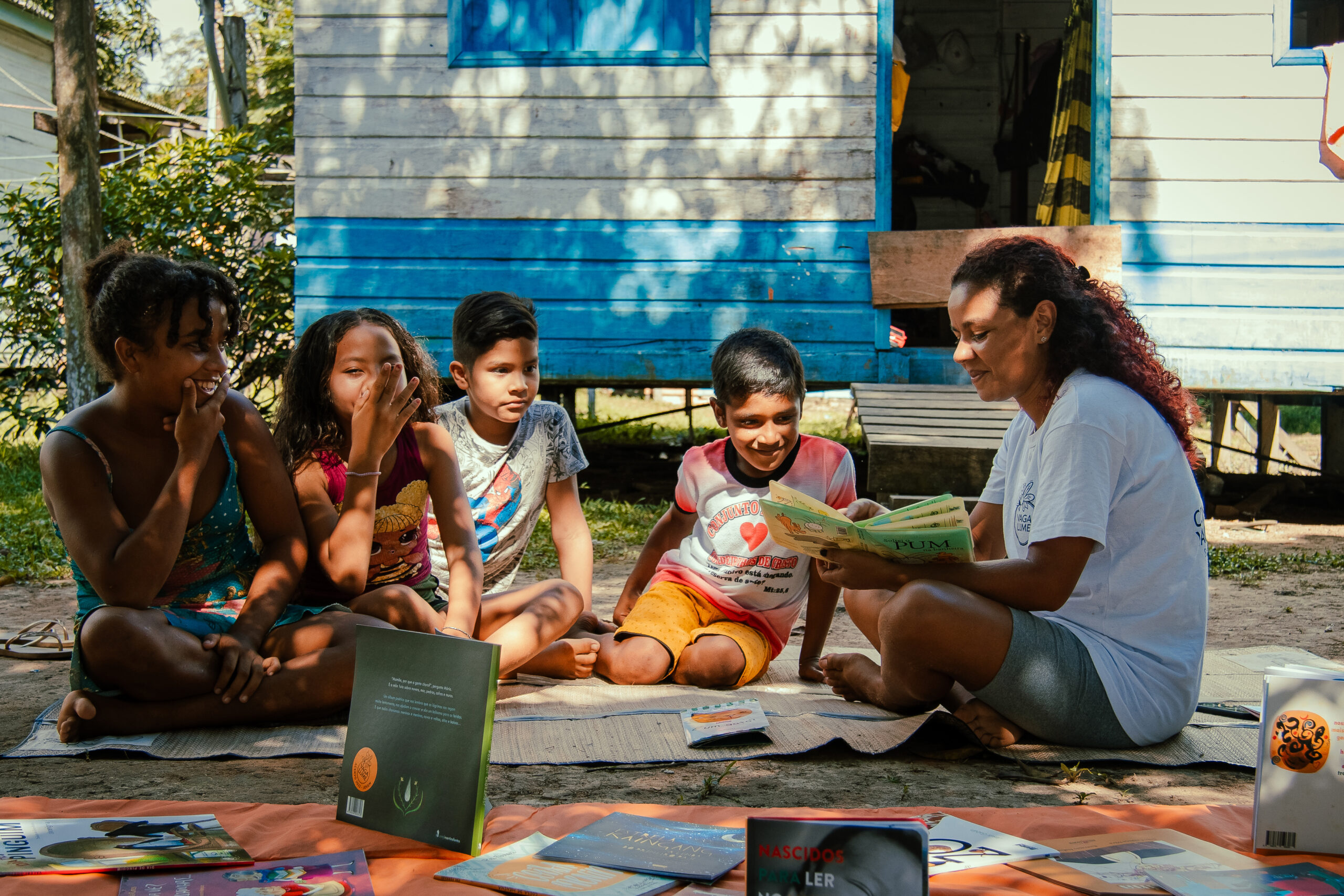

Every child loves a good story. When it is told with enthusiasm, it remains stored in memory until adulthood. The educators and founders of Vaga Lume know this well. No wonder, they have been implementing community libraries and training reading mediators in the interior of the Amazon since 2001. The size of this impact is immeasurable. By exercising a love of reading in children, it transforms young people and adults into volunteers ready to lead the same kind of mediations in the future.
The cycle has continued like this for more than 20 years. The project, which began with a trip by three recently graduated friends leaving São Paulo towards Pará, is now present in 9 states, totaling 95 libraries distributed in 22 municipalities in the region. All books are purchased through incentive laws, among other types of financing, and donated to communities.
“We serve quilombola, riverside, indigenous communities, settlements and road communities, in short, rural communities with the purpose of empowering children by promoting reading and managing community libraries. They are spaces to share knowledge”, says Lohana Gomes, an educator at Vaga Lume.
Reading
The libraries’ collection is hand-picked and focuses on literature. The number of works varies, due to sponsorships. In 2023, for example, there were 146 books for each library. Among the books were “A Caminho da Escola”, by Rosemary McCarney, “Letras de carvão”, by Irene Vasco and “Malala, a menina que queria ir pra escola”, by Adriana Carranca.
According to Lohana, the idea is for everyone in the community to have access to the collection. “We look for the best in the publishing market, thinking a lot about the diversity and quality of these books, bringing representation to the collection, with black and indigenous literature, accessibility, foreign and local authors”, she explains.
Since the library is often located in schools, mediators read under trees, on the riverbank and in other outdoor spaces that accommodate all residents. “We encourage reading mediation as a cultural action and, so that these books are accessible, we use the different spaces in the community, providing an intergenerational proximity that already exists, between the oldest and the youngest”, says the educator.
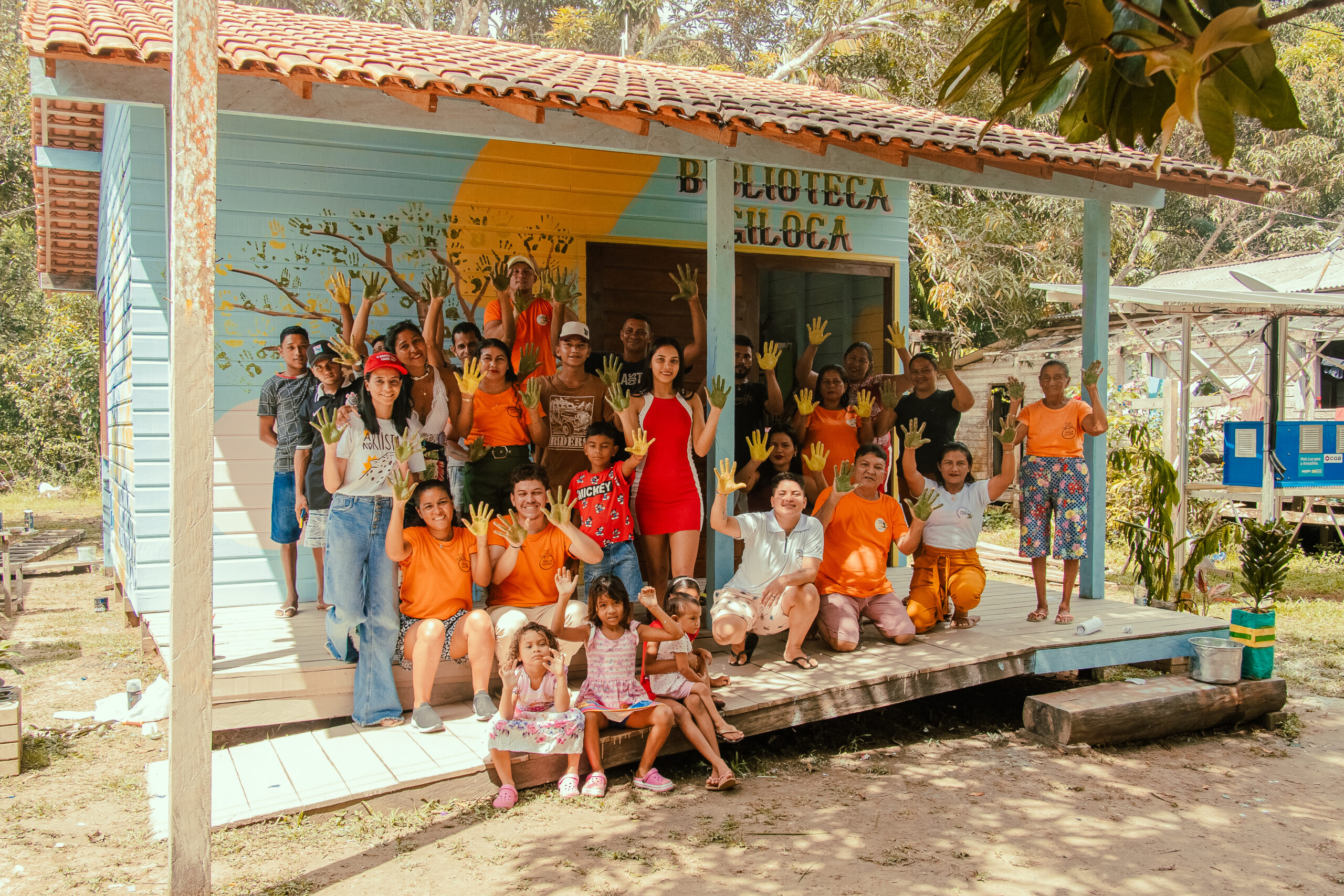
Vaga Lume Association
Community libraries are supplied with new collections every year. Sometimes, however, children like a work so much that the community ends up asking for a new copy of the same book. “We have a notebook where reading mediators write down the books they want, new or not”, points out Lohana.
“We sent books with LGBTQIAP+ themes, books by Bell Hooks, Conceição Evaristo… We opened a community library last year, for example, where volunteers requested a collection focused on black literature. The community had just recognized itself as quilombola and was seeking to empower itself through books”, she continues.
To keep community libraries strengthened and active, Vaga Lume promotes the training of reading mediators. This training is carried out by their own technical team, made up of two or three educators, who go to the communities to talk about the concepts and practices. “It’s a very constructive process. Then we hold regional meetings with mediators from practically all communities to exchange experiences.”
The mediators are all volunteers. “It is important that the library has a group of people involved and committed to this work so that it actually happens. So everyone in the community can become new mediators, whether at school, leadership groups and, especially, among young people, who have a lot of ideas and a lot of energy”, highlights Lohana.
Handcrafted books
Strengthening the culture of the territories is also part of the work linked to community libraries. “Sometimes, children don’t know the local history, so we value the intergenerational connection and hold circles with the older ones, who talk about how the community was built, the local legends and stories”, says Lohana.
Some story circles end up yielding handmade books made by the residents themselves. The people who tell the community’s story are the authors of the book, and create both the text and the illustrations. In some indigenous communities, the book is written in the native language. Then, the books are printed and distributed in other territories supported by Vaga Lume, so that there is an exchange of knowledge.
“The story of the ‘boto’ (a folklore story from Brazil) that happens in Oriximiná is different from the story of the ‘boto’ in Soure. Each community has its own specificity, and the book is a way of preserving this intangible heritage and also of observing and valuing the most important things these communities have”, recalls the educator.
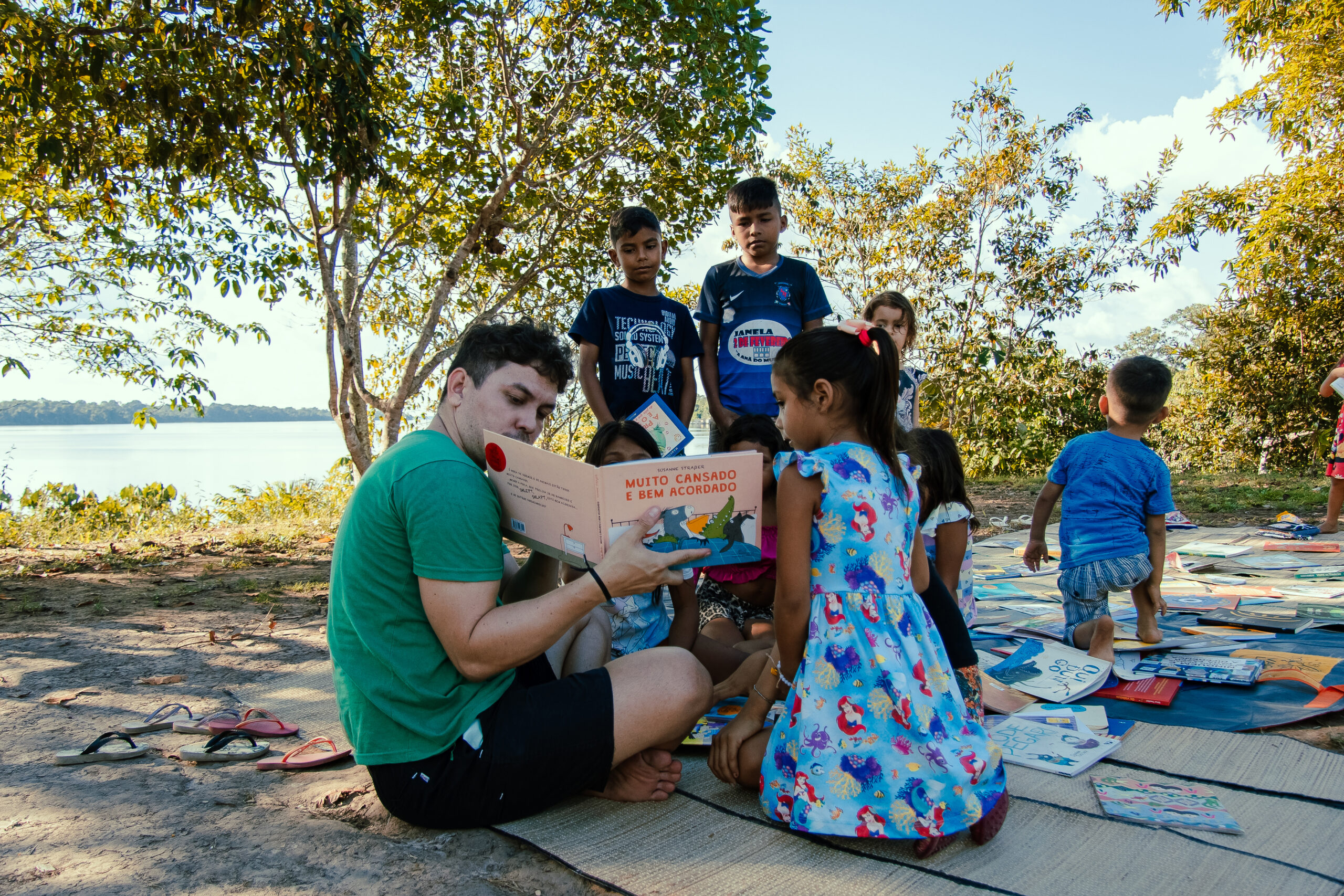

Children of the Amazon
Within this learning process linked to reading and storytelling, Vaga Lume also promotes a cultural exchange program between children from the Amazon and the Southeast, aged 10 to 14. On the one hand, children hold workshops throughout the year in which they talk about their lives: how they live, how they go to school, what they eat, etc.
On the other hand, educators from São Paulo visit communities in the Amazônia and then tell their students what they experienced in the territory. In the same way, educators from the Amazon travel to the Southeast to get to know the schools and students, and then tell the children in the communities what they experienced.
During the rest of the year, children continue to exchange experiences through videos, letters and gifts. “They end up knowing their specificities and valuing their community more”, says Lohana.
Awards and ESG
Vaga Lume has already won several national and international awards, including the Best Education NGO in Brazil three times and the Jabuti award for promoting reading. In addition to having incentive laws, the association also forms partnerships with companies through ESG, thus guaranteeing the constancy of its actions. As a result, community libraries increasingly create a network of knowledge, interest and respect. “The library doesn’t belong to Vaga Lume, it belongs to the people who are in the territory”, says Lohana proudly.
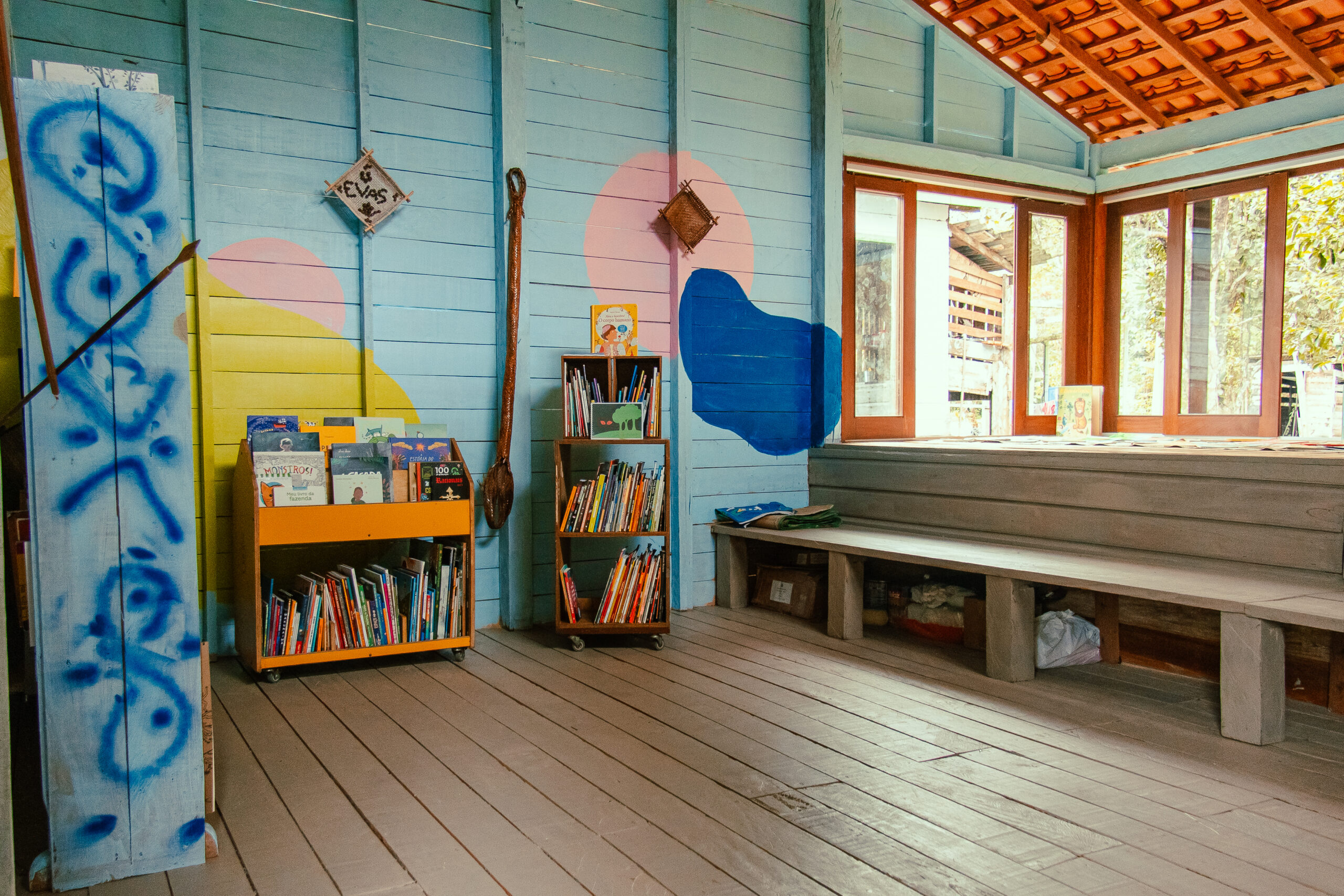

Want to support this cause?
In 22 years, the Vaga Lume Association has sent more than 160,000 books to rural communities in the Amazon and trained around 5,000 reading mediators. Donations and volunteering are always welcome! Want to know more? Visit the website or follow their social media on Instagram and Facebook.
